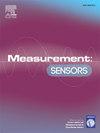使用联邦学习从x射线图像中检测肺炎-一种无监督学习方法
Q4 Engineering
引用次数: 0
摘要
先进的数据分析技术的出现,通过实现疾病的早期和有效检测,彻底改变了患者的医疗保健。传统上,疾病鉴定完全依赖于医学专业人员的专业知识。然而,医生数量的限制,特别是在资源有限的地区,可能会阻碍及时诊断。幸运的是,数据分析技术现在被广泛用于解决多种医学疾病检测。本文通过对胸部x线资料的分析,提出了一种新的肺炎疾病检测模型。健壮诊断工具的开发面临着一个严峻的挑战:缺乏对大型标记训练数据集的访问。这一挑战源于对医疗数据隐私的担忧。这项研究提出了一个解决数据稀缺和隐私问题的解决方案。它利用了一个在分散数据集上训练的无监督学习模型。使用的无监督学习方法是自编码器神经网络,用于模型训练的分散学习技术是联邦学习。所提出的方法在不损害患者隐私的情况下,对驻留在多个位置(如医疗保健机构)的数据进行模型训练。用于训练所提出的模型的数据集包括肺炎患者和健康个体的胸部x射线图像。与其他现有的肺炎检测模型相比,该模型具有令人满意的性能。在类似的研究中,医疗机构可以在不侵犯患者数据隐私的情况下合作开发高效的医疗工具。本文章由计算机程序翻译,如有差异,请以英文原文为准。
Pneumonia detection from X-ray images using federated learning–An unsupervised learning approach
The emergence of advanced data analysis techniques has revolutionized patient healthcare by enabling the early and efficient detection of diseases. Traditionally, disease identification relied solely on the expertise of medical professionals. However, limitations in physician availability, particularly in resource-constrained regions, can hinder timely diagnosis. Fortunately, data analysis techniques are now widely employed to address a multitude of medical disease detection. This paper presents a novel Pneumonia disease detection model by analyzing the chest X-ray data. The development of robust diagnostic tools faces a critical challenge: the lack of access to large, labeled training datasets. This challenge arises because of privacy concerns about medical data. This research proposes a solution that tackles both data scarcity and privacy concerns. It leverages an unsupervised learning model trained on decentralized datasets. The unsupervised learning approach used is an Autoencoder neural network, and the decentralized learning technique used for model training is Federated Learning. The proposed approach trains the model on data residing at multiple locations, such as healthcare institutions, without compromising patient privacy. The datasets used to train the proposed model consist of chest X-ray images of pneumonia patients and healthy individuals. It offers satisfactory performance when compared to other existing Pneumonia detection models. In similar studies, medical institutions can collaborate and develop efficient medical tools without breaching patients’ data privacy.
求助全文
通过发布文献求助,成功后即可免费获取论文全文。
去求助
来源期刊

Measurement Sensors
Engineering-Industrial and Manufacturing Engineering
CiteScore
3.10
自引率
0.00%
发文量
184
审稿时长
56 days
 求助内容:
求助内容: 应助结果提醒方式:
应助结果提醒方式:


